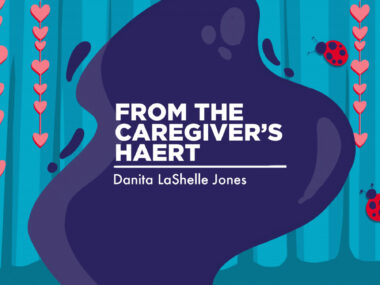Another spinach incident reminds us it’s better to double-check
Not paying attention can be costly
Written by |

“Did someone lock the door?”
It was a common question we’d hear whenever we got into the car.
My father was meticulous about ensuring that the front door of our home was always locked. Although we lived in a great neighborhood, our house sat on a large corner, providing ample getaways for anyone with nefarious intentions. Unfortunately, we found this out when my father’s 10-speed bike was stolen from the open garage — twice.
Having fully learned that lesson, my father would do two things every time we left the house: check the garage and the front door.
The habit would often drive my mother up the wall. We could be late, and my father would pause to check the doors. He would ask us the infamous question if he wasn’t the last person out of the house. And if it couldn’t be answered in the affirmative, everything would stop until it could be confirmed.
One year, on a particularly busy Easter weekend when my parents’ choir had to sing at church, we rushed out of the house and sped off in the car.
“Did somebody lock the door?” my father asked.
“I’m sure it’s fine,” my mom responded.
Not having time to turn around and check, my father drove on. Later, we arrived home to a wide-open front door, which, at the time, seemed like an ominous sign. Luckily, nothing was stolen. My dad deduced that someone didn’t close the door all the way, which may have led to a gust of wind blowing it open. Still, that one decision not to double-check haunted my dad for years.
Little did I know that years later, I would understand what it felt like to be haunted by that type of decision.
When our daughter, whom we lovingly refer to as Ladybug, was diagnosed with hereditary angioedema (HAE), it came at the tail end of what our family refers to as The Spinach Incident.
When she was in fifth grade, after consuming several bowls of raw spinach from the salad bar at school, Ladybug went into anaphylaxis. This led to a harrowing experience that took us from the emergency room to about four days in the pediatric intensive care unit (PICU). After several rounds of epinephrine and Benadryl, and with no relief in her swelling, her doctor, who already suspected HAE, convinced PICU staff to give her Berinert (human C1 esterase inhibitor).
Hours later, Ladybug was back to her usual self. But the new directive was clear: no spinach. Ever.
From then on, our family rarely ate out. When we did, we were meticulous about ordering food, determining which restaurants were safe and being very clear to the fantastic people taking our orders that spinach (or shellfish) could never touch anything that Ladybug would eat.
After identifying one restaurant as safe, we often frequented it because it was Ladybug’s favorite place to eat. However, we found ourselves in the ER last week after discovering too late that the eatery had switched from its signature romaine lettuce to shredded mixed greens with kale, romaine, and baby spinach.
Because an allergic reaction can trigger HAE flares, Ladybug was admitted for a two-day stay and had to be treated for both.
I don’t blame the restaurant. Ladybug and I were out of the habit of checking like we used to. It was a stark reminder that sometimes, not paying attention when you haven’t had to can lead to a life-or-death situation.
We’re back in the habit of double-checking.
The most significant lesson is that the inconvenience of checking far outweighs the inconvenience of the consequences.
Note: Angioedema News is strictly a news and information website about the disease. It does not provide medical advice, diagnosis, or treatment. This content is not intended to be a substitute for professional medical advice, diagnosis, or treatment. Always seek the advice of your physician or other qualified health provider with any questions you may have regarding a medical condition. Never disregard professional medical advice or delay in seeking it because of something you have read on this website. The opinions expressed in this column are not those of Angioedema News or its parent company, Bionews, and are intended to spark discussion about issues pertaining to angioedema.




Leave a comment
Fill in the required fields to post. Your email address will not be published.